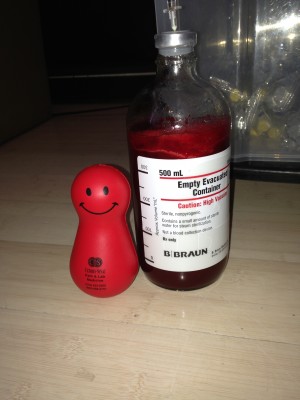Being Anemic does NOT mean you have an iron deficiency
Throughout my years as a personal trainer and nutrition specialist, I’ve learned that Anemia is a pretty common diagnosis amongst the U.S. population. However, last year, I learned that being Anemic does not mean that you have an iron deficiency and that this all-too common diagnosis might be hurting people more then it’s helping……
I’ve been told that I’m Anemic since I was a child. I’ve grown used to having my doctors walk me to the wait-room while handing me a list of iron-rich foods. I’ve even been prescribed iron-enhancing medications. Last year I was diagnosed with iron toxicity. I wondered how could I possibly be iron-deficient and iron toxic at the same time?!? And that’s when my research began…
Let’s get the facts straight:
1) Anemia means “lack of blood, ” not “lack of iron.” Being anemia simply means you have a decreased number of red blood cells (RBCs).
2) Anemia is the most common blood disorder and can be caused by 3 primary triggers :
- a) blood-loss
- b) blood cell destruction
- c) deficient red blood cell production (this one is usually genetic)
- This is the most common cause
- Doctors will almost always recommend increasing your iron without actually performing an iron panel
- If you are diagnosed with Anemia, then I highly recommend you ask to have an iron-panel performed
I am slowly learning that doctors base their prescriptions upon the most common explanation, without delving further into your hematology. And in my case, that kind of approach could have killed me at an early age if I didn’t understand how important it was to have more blood-work done and to do my own research.
In my case, I learned that my Anemia (which is Genetic) co-exists with a secondary condition called Hemachromatosis (also Genetic). People with Hemachromatosis absorb unusually higher amounts of iron from the foods they eat (beef, pork, some sea foods, any iron that is combined with Vitamin-C rich foods). I was diagnosed with iron toxicity one year ago and was disappointed to learn that I could have avoided this condition (and thousands of dollars spent for treatment) if my doctors wouldn’t have been so lazy and careless enough to look further into my blood panels.
I believe it’s important to do your own research. Once a doctor labels you or diagnoses you, you should consider doing your homework before swallowing whatever pills your doctor prescribes. Sometimes the costs are not worth the benefits and often-times you’ll learn easier, safer, and less expensive ways to treat yourself.

